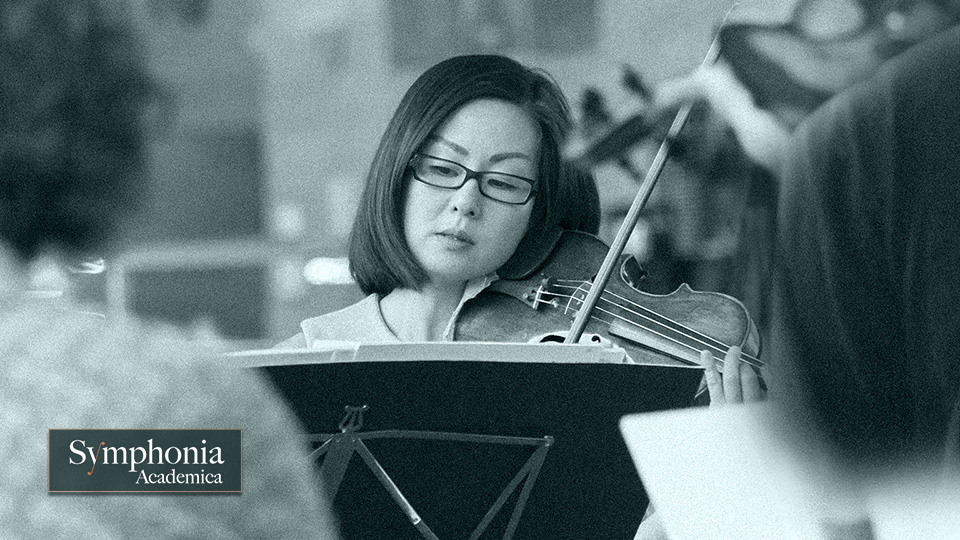




Symphonia Academica perform, for Benslow Music Trust in Hitchin, Hertfordshire, a selection of works by Mozart, Crusell, Britten and Beethoven on the evening of Monday 20 November.
Symphonia Academica perform their debut concert for Benslow Music Trust in Hitchin, Hertfordshire with a selection of works by Mozart, Crusell, Britten and Beethoven at 8pm on Monday 20 November 2017.
Peter Bussereau (violin); Ania Ullman (viola); Julia Graham (cello); Rebecca Wood (oboe) and Julie Beaman (clarinet).
Mozart - Oboe Quartet in F
Crusell - Clarinet Quartet in D No 3 Op 7
Britten - Phantasy Quartet for oboe and strings.
Beethoven - String Trio Op. 9 No 1
Mozart had encountered the virtuoso playing of the oboist Friedrich Ramm whilst in Mannheim in 1777, leading to Mozart giving his oboe concerto to the overjoyed Ramm. So when in 1781 Mozart found himself in Munich whilst working on his opera Idomeneo he was pleased to come across Ramm again playing in the court orchestra. This encounter produced not only some of the wonderful oboe passages in Idomeneo but also Mozart's oboe quartet. The quartet's virtuoso writing for the instrument explores its full potential, with high notes, athletic leaps and, in the last movement particularly, an explosion of fast notes.
Crusell was born in Finland and despite spending most of his life in Sweden always considered himself a Finn. Born into a hard working family of bookbinders, his family moved to Sweden close to military barracks whilst he was quite young. Crusell had some initial music lessons from the musicians there. Despite Crusell's very modest initial teaching he soon became one of the most proficient and eloquent players of his time. His reputation led him to travel Europe, with short periods of study in Berlin with the eminent clarinetist Franz Tausch and later in Paris with Jean Xavier Lefévre. His travels also introduced him to the latest developments in clarinet design and techniques which enhanced his beautifully melodious tone production. The clarinet quartet opus 7 was written about 1821 and was dedicated to the diplomat and soldier Count Gustaf Carl Fredrik Loewenhielm, responsible for planning Sweden's successful campaign against Napoleon. The work also seems to bear some similarities to the music of Weber, whose quintet was published in 1816 and who Crusell met in 1822.
Born in Lowestoft, the young Britten showed considerable interest in composing and by the age of fifteen was taken under the wing of Frank Bridge. After two years with Bridge he went to the Royal College of Music but his style and musical interests meant that he was at odds with his tutors and he continued to turn to Bridge for advice and guidance. In 1932 Britten had won the College's Cobbett Prize with his Phantasy for string quintet. In the autumn of 1932 he began work on his Phantasy quartet for oboe and strings. Whilst it did not win a Cobbett prize it did get him a BBC broadcast performed by the eminent oboist Leon Goossens, the works dedicatee. The work is in the form of an arch with a central beautiful slow section but this dissolves back into a lively rhythmic section, which itself turns into the slower opening march like material and finishes with the serene and quiet murmurings of the cello, a mirror image of the works opening.
Beethoven's family life in Bonn was difficult and not particularly happy and his turning to music to help the family income was probably by necessity. However necessity had set light to one of western classical music's greatest talents. In 1792 Beethoven went to Vienna to study with Haydn. He was already in the employ of the Archbishop Elector of Cologne, himself the son of the Empress Maria Theresa, which led to Beethoven being introduced to leading members of society in the imperial capital. So when Beethoven turned to chamber music in about 1793 it was not to the more obvious string quartet, which one might have expected given his studies with Haydn, but the string trio. Following on from his opus 3 and opus 8 works for this combination, Beethoven in 1797 set about writing a set of three, his opus 9, all dedicated to Count Johann Georg Von Browne-Camus, a wealthy man of Irish descent working for the Russian Imperial Service. Of the set the first trio in G major is the most buoyant and glowingly optimistic and it ends tonight's concert in an explosion of Beethovinian energy.
Symphonia Academica is formed from a group of musicians who all play with some of London's finest orchestras and has recently been appointed Associate Ensemble to the Anglia Ruskin University. Passionately interested in chamber music and music for strings Symphonia Academica was created by Peter Bussereau to explore the rich area of chamber music and perform it with like minded classical musicians.
The ticket price for the evening's performance, starting at 8pm, is £15.00 but, thanks to support from the CAVATINA Chamber Music Trust, free entry is offered for 8-25 year olds. Symphonia Academica has education very much at the core of its ethos, frequently working with schools, university students and adults.
The ensemble's performance on Monday 20 November opens a four day course: String Trios Plus with Symphonia Academica. During the course members of the ensemble will offer friendly guidance and advice while participants explore music for string trio with oboe or clarinet. The course, hosted at Benslow Music's tranquil site in Hitchin, Hertfordshire, is open to individual violin, viola, cello, oboe and clarinet players, as well as preformed groups (of any combination) to enjoy this rich vein of chamber music. The course is open to both residents and non-residents, all of whom will be admitted to the ensemble's public performance on this, the first night.